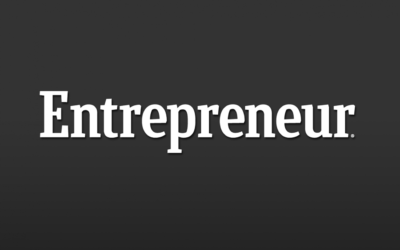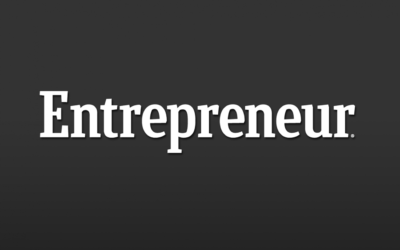SA’s Yoco Gets the US, Netherlands Funding to Tackle Cashless Economy
SA’s Yoco Gets the US, Netherlands Funding to Tackle Cashless Economy.
by Staff Writer US-based Quona Capital, which is a manager of the Accion Frontier Inclusion Fund worth $141 million and Netherlands-based Velocity Capital sees value in South Africa’s fintech start-up, Yoco.
Yoco said the new capital will help it to grow its national footprint, launch new fintech services and lay the groundwork for international expansion in 2018.
Raising smart capital from seasoned fintech investors will enable us to continue our self-directed journey to grow the SME payments markets through world-class execution, delivered with radical simplicity.” The company, which was founded in 2013 by Katlego Maphai, Carl Wazen, Bradley Wattrus and Lungisa Matshoba, has undergone prior funding rounds, having raised seed capital from angel investors and seed funds, including the likes of CRE Venture Capital, specialist fintech angel investor Robby Hilkowitz, and Greg Kidd (a first round investor and advisor at Square and Twitter).
This is, however, the first funding round it has raised solely from institutional investors and is bigger than previous raises.
Netherlands-based Velocity Capital specialises exclusively in early-stage fintech investments, and invests globally but selectively.
Quona Capital co-founder and partner Monica Brand Engel and Velocity Capital director Allard Luchsinger say their firms chose to invest in Yoco because it has a world-class platform and team, and has the ability to be a driving force in Africa’s SME economy.
Seventy percent of the merchants it currently services had never accepted card payments before Yoco made it possible for them to do so.” Says Maphai: “Since Yoco launched in 2015 we have made it possible for 6 500 South African SMEs to accept card payments, digitise their payments data so they have a record of all transactions, and apply business intelligence tools to help them run their businesses better.
We believe enabling card payments is transformative for businesses, and want to be able to do that for SMEs across the continent.
This round of funding will enable us to start on that journey.”
Here Are the Local Companies That Raised Funding in February
They all secured venture capital this past month.
This follows the $112 million round it closed about a year ago, bringing it to a total of $304 million in funding.
Existing investor Stratim Capital also participated.
Voysis A voice AI startup with offices in both Boston and Dublin, Voysis raised an $8M Series A round led by local VC firm Polaris Partners.
Altogether, the offering listed on the Form D was for a total of $9 million.
Neurala This is the Boston software company behind a deep learning “brain.” It raised an undisclosed amount of funding from local Boston investment firm Raptor Group.
This most recent investment is in addition to the $14 million Series A funding led by Pelion Venture Partners that Neurala secured in January.
This capital brings the venture’s total funding to about $35 million.
CareDash The Cambridge startup providing online reviews of healthcare professionals raised $2 million in debt and equity funding from Link Ventures.
According to a Form D filing, it secured just over $463,000 for its on-the-go smoothies, which are available online and at stores throughout the country.
Snapchat rumoured to be working on a selfie DRONE ahead of initial public offering
Snapchat rumoured to be working on a selfie DRONE ahead of initial public offering.
According to The New York Times , which cited three people briefed on the project, the Snapchat drone would allow users of the popular selfie-sharing app to take photographs of themselves from the air.
Snap was reportedly in talks with Lily Robotics last year about a possible deal.
The company makes a camera drone that flies itself, and follows the user around thanks to a GPS tracking device worn on their wrist.
Last month, Snap filed paperwork for an initial public offering (IPO), in which it described itself as a “camera company”, and repeatedly referred to “hardware” as a possible source of future revenue. “We believe that reinventing the camera represents our greatest opportunity to improve the way people live and communicate,” the company stated.
Snap is set to officially reveal the price of its shares today, after the close of the financial markets, with trading to begin in earnest on Thursday morning between 16:00 and 16:30 GMT.
Snap is expected to price its shares between $14 and $16.
This could help it raise as much as $3.2 billion, with the company’s valuation ranging from $19.5 billion to $22.3 billion.
Snapchat lowered its target valuation ahead of its IPO roadshow, in part due to investor concerns about slowing growth and competition from Instagram.
Startup Failure: #5 Reasons Why Indian Startups are Shutting Shop
Startup Failure: #5 Reasons Why Indian Startups are Shutting Shop.
There are several internal issues that could eventually lead to the closure of ambitious business models, however industry experts and entrepreneurs have jotted these to be the main reasons for exiting the market.
This didn’t go down well with consumers, who preferred to stick by the first movers of this industry, which lead to several shutdowns in the food-tech startup business.
Many a times, having the first mover advantage and getting the first set of customers early in the business can leave very little chance for other players to enter the market.
A successful Flipkart, lead to several copy-cat models getting funded.
Basically work backwards to ensure enough money is left for all such needs and don’t spend the last rupee to leave the employees, vendors stranded, K Ganesh, Serial Entrepreneur, Partner – GrowthStory.in and Chairman, Portea Medical, told Entrepreneur in an email.
Disruptive technology The market scenario has changed due to disruptive technology or solutions becoming available at much lower prices.
Initial assumptions gone wrong Every startup is based on an assumed business model that’s supposed to work.
Some of these assumptions are fundamental to the business model.
Having said that Anil also noted that what worked in a small sample size where there is negligible cost of sales, marketing or even customer acceptance may not work economically on a larger scale.
Malaysia’s Cradle Fund is shifting towards equity funding, launches new service to help achieve this goal
Malaysia’s Cradle Fund is shifting towards equity funding, launches new service to help achieve this goal.
Cradle Fund Sdn Bhd, an agency under Malaysia’s Ministry of Finance, announced this week the launch of an investment product called Direct Equity 800 (DEQ800) that is built to help startups receive cash injections of between RM800,000 (US$180,000) and RM300,000 (US$67,000).
The strategy behind DEQ800 is to slowly wean early-stage Malaysian startups off of government grants.
According to Cradle Group CEO Nazrin Hassan, about half of Cradle’s budget for 2017 will be equity-funding while the other half will be in grants.
Longterm, Cradle hopes to gradually shift away from grants and towards the equity model.
The decision comes on the heels of a February initiative from Cradle to expand its portfolio.
Cradle will target a wide-range of industries — like fintech or oil, gas and energy.
But, the company must be a tech-based startup.
Previously, Cradle would match the amount being invested from their partners.
Also Read: The long game: A crash course in customer lifetime value Cradle Fund also has a subsidiary called Cradle Seed Ventures that was launched in June, 2015.
5 Creative Ways Startups Are Going Green
5 Creative Ways Startups Are Going Green.
Some of them have baked green business ideas into their profit motives, while others are working to reduce their eco-footprint even when doing so isn’t directly tied to their mission.
Here are five creative ways startups are going green.
Sometimes startups don’t begin their business with an environmental ethos, but gradually work to reduce their eco-footprint over time.
Luckily, a host of startups are investing in the sustainable energy revolution with eco-friendly energy solutions and/or working to reduce their own energy waste.
They’re sourcing sustainable materials.
Startups are rising to the challenge by utilizing organic cotton (in the case of the fashion industry), investing in sustainable farming (in the case of the food industry), and utilizing non-toxic materials (in the case of the mattress industry).
The production of paper requires the destruction of natural resources (i.e. trees) as well as copious amounts of water and energy.
Startups are working to reduce their own paper usage—as well as their customers’ paper consumption—in a number of ways.
The e-commerce site EcoPlum, for example, sells eco-friendly products and works to educate its customers about the importance of environmentally friendly consumerism.
Free Webinar: Best Tips for Customer Care Over Social Media
Free Webinar: Best Tips for Customer Care Over Social Media.
Tech-savvy customers are reaching out via social media—and the rules are completely different.
Business owners need to have a strategy for communicating with and exceeding expectations for these customers.
To find out how to provide top-notch customer care over social media, don’t miss this free webinar, Customer Care Strategies Using Social Media, presented by Comcast Business and Entrepreneur.
We’ll cover the gamut of social interactions—everything from responding to praise, dealing with complaints, how to take conversations offline/private, how to diffuse pile-on, response times and more.
Implement a simple, two-step process for determining the validity of complaints, criticism, and feedback, and how to respond the right way.
Remain authentic and personal while still leveraging social media in a smart, effective way.
Communicate your core company values and build trust through EVERY customer interaction.
Author and business communication expert Jill Schiefelbein will serve as moderator.
The Customer Care Strategies Using Social Media webinar will take place live on Friday, Apr 7, 2017 from 12 p.m. to 1 p.m.
Preparing for the Next Stage of Growth
Even though growth brings its own set of challenges, everyone associated with the business is having fun.Things are good.
Other times, however, selling becomes an escape for an entrepreneur who’d like to grow the business further but doesn’t know how.
I talk a lot about the “S-curve” to describe a common growing pain businesses face.
When Infusionsoft started, there was no market for all-in-one sales and marketing software for small businesses.
This led to years of stellar growth as we rode the wave of market leadership.
But I had to make the decision that many of you will likely face at some point — continue with business as usual or make drastic changes to jump to the start of a new S-curve.
The feeling can be akin to running two separate companies as you balance assets against maintaining your current market leadership and betting on where you see future opportunities.
That being said, pivoting or shifting is essential for businesses, but particularly so for tech companies that operate in quickly evolving spaces.
You have to adjust your leadership model based on the size of your company.
They run a 300-person company in the same manner that they would a 50-person company, which often proves fatal.
Look Before Leaping: Consider this before investing in a startup
Some are motivated to support the local economy, some to support endeavors about which they are passionate, and still others are encouraged by the success stories covered by the media.
This final group often contains individuals who hope to capitalize on the tech industry; they take the time to research the startup before they make the decision to invest.
I agree it’s important for investors to develop metrics to measure business growth before they put their money forward for investing.
Investors need to evaluate their financial situation as thoroughly as they review the background of the startup they wish to potentially fund.
Investing in their personal financials first can help to cover the bases for their future personal financial success, and then they can look to investing in the next, hopefully successful, startup company.
The reason I make this point is because while investments in startup companies provide their own set of risks, they can also result in impressive returns, and may do so in a relatively short amount of time.
Those hopeful returns may be tied up for longer than expected, and may not be available for funding other personal financial expenses such as retirement savings, life insurance or educational funding.
By undergoing long-term wealth planning for their personal finances, investors can plan to have liquid cash assets available for those personal financial expenses.
With their personal financial planning complete, investors are essentially prepared for risks that occur when investing, especially in a startup.
He is responsible for delivering investment management, private banking, trust and estate services, and financial planning to clients.
4 Tax Tips for Small Business Owners Determined to Pay Only Their Fair Share
Business owners across the nation will be spending the coming weeks sorting through accounts and records in an effort to piece together a picture of their business’s finances over the past year.
I know how frustrating and tedious this process can become, so here’s a few tricks to calm the chaos.
Prepare as you go You would think this kind of advice should go without saying, but it’s surprising how often it goes ignored.
Make sure your accounting department, or whoever handles your books, is keeping track of every transaction in as close to real time as possible, to prevent human error and forgetfulness.
Familiarize yourself with small business tax deductions If you take care of your own books and business taxes, this tip is for you.
Having a bit of knowledge about the small business tax deductions that you your business may be able to take advantage of will be prove to be invaluable — especially one tax code in particular, Section 179.
This tax code allows small businesses to deduct the cost of qualifying equipment that was purchased or financed and put into use in the same year, up to $500,000.
Many of those business owners finance equipment to take advantage of the tax write-off.
Pay attention to important deadlines There are hundreds of different tax deductions and tax credit filing forms, many of which have deadlines in which they must be filed by.
Deductions and credits change every year, so working with a professional that keeps up to date on these variances can maximize your deductions and minimize any human error associated with doing your own taxes.
Patrick Bet-David: Getting Bullied in School is Good Training for Entrepreneurship
Patrick Bet-David: Getting Bullied in School is Good Training for Entrepreneurship.
Sensitive souls don’t make it as entrepreneurs.
The world of business can get ugly, and only the people who can withstand hardship have a chance at success.
So, if you’ve ever had a bad experience or a low moment, you can use that time — and the strength you gained from conquering it — to thicken your skin and ready yourself for the difficult, frustrating and incredibly rewarding world of business.
In this video, Entrepreneur Network partner Patrick Bet-David explains how eight different experiences can help you as an entrepreneur.
To learn more, click play.
Watch more YouTube videos from Bet-David on his channel and check out his new book Drop Out And Get Schooled.
Entrepreneur Network is a premium video network providing entertainment, education and inspiration from successful entrepreneurs and thought leaders.
We provide expertise and opportunities to accelerate brand growth and effectively monetize video and audio content distributed across all digital platforms for the business genre.
EN is partnered with hundreds of top YouTube channels in the business vertical and provides partners with distribution on Entrepreneur.com as well as our apps on Amazon Fire, Roku and Apple TV.
Marijuana Lobby Grows As Legalization Spreads Throughout Country
As the cannabis legalization movement continues to score victories across the country, the number of lobbyists for the industry continues to grow.
Founded in 2010, the association refers to itself as the only national association representing cannabis businesses at the federal level.
At the beginning of 2013, the association had 118 members.
Former government regulators The NCIA is just one sign of the growth of the industry.
Also, a former marijuana regulator in Colorado now heads the state’s Cannabis Chamber of Commerce.
Lone Star State Lobby Perhaps no better sign for the continued acceptance of marijuana and the focus of lobbying groups is bigger than Texas, a long-time “red state” that has not legalized medical marijuana, much less recreational marijuana.
Marijuana lobbyists in Texas set aside Feb. 22 to come to the state capital in Austin to support legalized medical marijuana.
Bills already have been filed in both houses of the Texas Legislature seeking approval of medical marijuana, which already is legal in 28 states and the District of Columbia.
The growing support and lobby for legal marijuana in Texas seems to have worked.
A new poll from the University of Texas and the Texas Tribune shows that 83 percent of Texans support legalized marijuana for some use, while 53 percent support it for recreational use.
Exclusive: Deals platform Couponhaat raises funding from Austria-based angel investor
Student startup Flux charged for future with portable battery
A Bolivian student at UCLA said entrepreneurship in Bolivia is more difficult than in the U.S. where he has now co-founded a successful portable phone charger company.
By the time they joined Startup UCLA, the Flux team already had a prototype of the charger, which they developed with a $20,000 out-of-pocket initial investment, Rioja said.
Flux Ventures houses three companies: Flux Chargers; Flux.La, a consulting firm which provides website consulting and marketing services and Flux Capital, an investment company which invests in the market and startups.
Flux is not Rioja’s first startup.
Rioja said building a startup in the U.S. has been a completely different experience.
Funding is very hard to find back home.” Rioja also said he noticed a difference between the availability of resources for technology startups in Bolivia and the U.S. “The mentality here is a lot more advanced than what we have back home,” he said.
Anthony, a fourth-year mathematics and economics student, said working for the Flux company while completing his degree has been challenging, but he is proud of the product they have created and that they were able to find a good team.
“I love waking up every morning knowing that people in over 80 different countries have been able to use my product to solve a problem they experience,” he said.
“We definitely are proud of what we’ve done so far, but there’s a lot more to be done.” Sponsored Are You Thinking Mobile First?
Use IBM’s Mobile Business Insights to get ahead of the competition Learn More Sponsored by IBM
Morgans appointed on Dixon Hospitality initial public offering
Morgans appointed on Dixon Hospitality initial public offering.
Morgans has been appointed as a co-joint lead manager on Dixon Hospitality’s mooted initial public offering, Street Talk can reveal.
It is understood Morgans and Evans & Partners are poised to kick off a non-deal roadshow next month.
The first meeting between management and fund managers will be held on March 8 at one of Dixon’s key venues: 12-Micron at Barangaroo South in Sydney.
Dixon Hospitality, led by former Spotless Group chief executive Bruce Dixon, has been scaling up ahead of a $300 million-plus ASX listing in the first half of this year.
It now owns 47 pubs, hotels and restaurants, including 505 Wine Room in Toorak, the College Lawn Hotel in Prahran, the Imperial Hotel in Bourke St Melbourne, Tap House at Sydney Airport and the Oxford Tavern in Sydney’s Petersham.
Dixon’s most recent purchase was the prime NSW assets out of Keystone Hospitality’s portfolio, including Manly Wine, The Rook, The Winery in Surry Hills, and Bungalow 8, Cargo Bar.
The group has already attracted some heavyweight backers, including a fund connected with gaming billionaire James Packer and businessman and Collingwood president Eddie McGuire.
Cloudera Said to Choose Banks for IPO as Soon as This Year
Cloudera Said to Choose Banks for IPO as Soon as This Year.
Cloudera Inc., the big-data company backed by Intel Corp., hired underwriters for an initial public offering that could come as soon as this year, people with knowledge of the matter said.
Cloudera notified a number of firms this month that they’d been picked to lead the IPO, said the people, who asked not to be identified because the information is private.
After a quiet start to 2017, the U.S. market for technology IPOs market will face its first test this week.
Smaller enterprise-technology companies MuleSoft Inc. and Alteryx Inc. both filed to go public this month.
A representative for Cloudera didn’t respond to a request for comment.
The company creates tools and provides services that center on the open-source data analysis software, Hadoop.
Its technology helps wrangle mass amounts of data, analyze it and use it to make decisions in real time.
Cloudera competes with the likes of Hortonworks Inc. and MapR Technologies Inc.
It has raised upwards of $1 billion in private funding, including a $900 million round in March 2014.
Alteryx Files for $75 million IPO
Alteryx Files for $75 million IPO.
Alteryx Inc., a software maker in Irvine, aims to raise $75 million in an initial public offering.
The company applied to be listed under AYX in a Friday filing with the Securities and Exchange Commission.
The pricing and number of shares being sold have not yet been announced.
Goldman, Sachs & Co., J.P. Morgan Securities LLC, Pacific Crest Securities, William Blair & Co., JMP Securities, Raymond James & Associates, and Cowen and Co. are the underwriters.
SRC was founded in 1997 by Dean Stoecker, Olivia Duane Adams and Ned Harding.
It changed its name in 2010 to that of its core product, Alteryx.
Alteryx in 2015 said it had 1,000 customers in more than 40 countries.
It employs some 300 people and has seven regional offices worldwide, including an office in Silicon Valley.
Contact the writer: hmadans@ocregister.com or Twitter: @HannahMadans
Warren Buffett and Bill Gates’s Top Secret to Success
Warren Buffett and Bill Gates’s Top Secret to Success.
The documentary also focuses on his friendship with another of the world’s wealthiest men, Bill Gates.
Many of the most highly successful people in the world I have spoken to attribute a singular focus — a commitment to the pursuit of one main goal or arena — to their success.
I am the poster child for “do as I say, not as I do,” given my sheer number of current varied pursuits, but early in my career, I made my first million from very specific focus.
So, how can you stay focused in a world with so many distractions?
Set a concrete goal or focus.
Buffett spends a significant portion of his time reading and very little time actually taking action.
There are so many distractions and opportunities in life, you have to constantly ask yourself if you are spending your time on your focus.
If it is, make sure there isn’t another activity that would support your focus even more strongly.
You may not end up as wealthy as Warren Buffett or Bill Gates, but having a sincere focus on what you are trying to accomplish — combined with a perseverance to stick with it day in and day out — will make for an incredibly successful you.


















